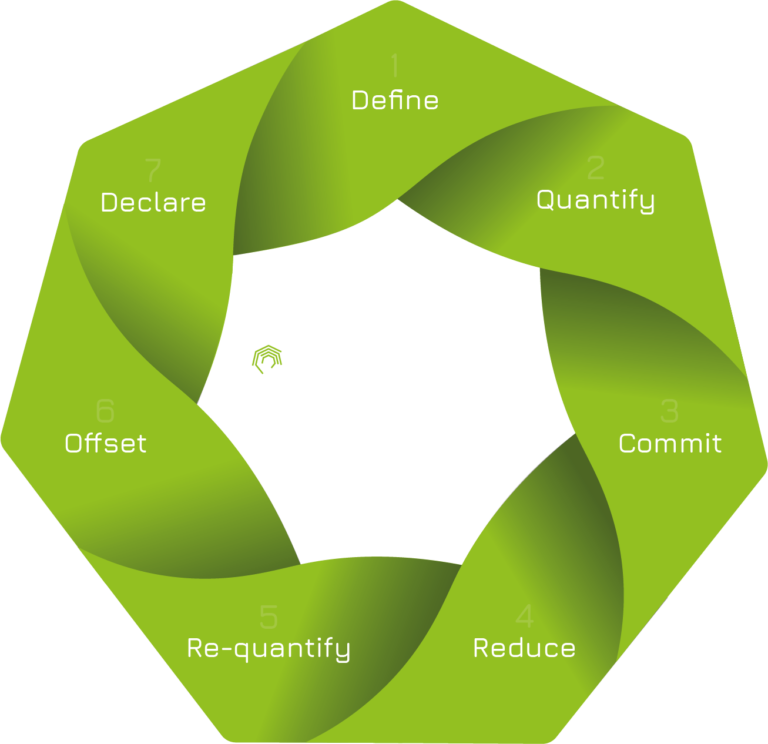In an era of heightened awareness about the impact of business operations on the environment, effective management of energy consumption and carbon emissions has become crucial for companies seeking to thrive and contribute to a sustainable global economy. One increasingly important compliance regime in the UK, geared towards driving energy efficiency and carbon reduction, is the Streamlined Energy and Carbon Reporting (SECR) framework. Introduced in April 2019, SECR obliges large UK businesses to disclose their energy usage, greenhouse gas emissions, and related energy efficiency actions within their annual reports.
The primary objective of SECR is to encourage businesses to understand their energy consumption better and take proactive measures to reduce carbon emissions. In the long run, effective energy management and carbon reduction can translate into financial savings, enhanced brand reputation, and a more sustainable operational model. However, navigating the complexities of SECR compliance and leveraging the framework for maximum energy efficiency and carbon reduction can be challenging for many businesses.
In this blog article, we will delve into the benefits and importance of SECR for businesses seeking a greener future, discussing the potential financial and environmental advantages that can be gained from embracing this reporting framework. We will also demonstrate how strategic energy management and carbon reduction activities can increase market competitiveness and overall business performance. Finally, we will showcase how we can support your organisation’s journey towards SECR compliance and improved energy management.
Key Components of Streamlined Energy and Carbon Reporting
The SECR framework entails several critical requirements that companies must fulfil as part of their annual reporting. The key components of SECR include:
1. Energy consumption disclosure: Businesses must provide information on their total energy consumption, which typically encompasses electricity, gas, and other fuels or energy sources used within the organisation.
2. Greenhouse gas emissions reporting: Companies must quantify and report their direct (Scope 1) and indirect (Scope 2) greenhouse gas emissions, demonstrating their environmental impact.
3. Energy efficiency actions and improvements: Organisations must describe the steps they have taken in the reporting period to improve energy efficiency and reduce emissions, highlighting their commitment to sustainability.
4. Intensity ratio: Companies must identify a suitable energy or emissions intensity ratio relative to their operations, which enables stakeholders to benchmark and compare their performance against other organisations in the sector.
Benefits of Streamlined Energy and Carbon Reporting for Businesses
As organisations increasingly focus on sustainability and environmental stewardship, embracing SECR compliance offers numerous tangible and intangible benefits. Among these advantages are:
1. Cost savings: Effective energy management and carbon reduction strategies can produce substantial financial savings by reducing utility bills and operational costs. Moreover, these savings contribute to increased profitability and business longevity.
2. Enhanced brand image: Compliance with SECR requirements and proactive energy management can strengthen a company’s reputation and credibility in the eyes of customers, investors, and other stakeholders.
3. Improved operational efficiency: Analysing energy consumption data and implementing corresponding efficiency measures can reveal opportunities to streamline operations, enhance productivity, and minimise waste.
4. Informed decision-making: Regular monitoring and reporting of energy consumption and emissions data enable informed decision-making and provide insights that can guide strategic business planning.
Implementing an Effective SECR Compliance Strategy
Achieving SECR compliance and leveraging the resulting benefits necessitates a robust and well-considered strategy. Key elements of an effective SECR compliance plan include:
1. Data collection and monitoring: Establish processes to consistently collect and store energy consumption and emissions data, ensuring the accuracy and reliability of the reported information.
2. Identifying energy efficiency opportunities: Perform regular energy audits and assessments to pinpoint areas for efficiency improvements, such as equipment upgrades, process optimisations, or employee behavioural changes.
3. Setting targets and implementing action plans: Develop measurable energy efficiency and carbon reduction targets and create action plans that outline the specific initiatives required to achieve these objectives.
4. Ensuring accountability and ongoing improvement: Assign responsibility for overseeing energy management and SECR compliance to a dedicated team or individual within the organisation, fostering a culture of accountability and continuous improvement.
How Carbonology® Can Support Your SECR Compliance Journey
Navigating the complexities of SECR compliance and optimising your energy management strategy can be challenging. Partnering with Carbonology® offers a range of benefits that can help your organisation achieve and maintain compliance while maximising energy efficiency:
1. Expert guidance on SECR requirements: We can help you fully understand the SECR framework’s specific requirements and provide pragmatic advice on achieving compliance tailored to your organisation’s unique circumstances.
2. Energy management planning and auditing: Our team of energy experts can support you in developing robust energy management strategies, conducting energy audits, and identifying opportunities for energy efficiency improvements.
3. Assistance with data collection and monitoring: We can help you establish effective data collection and monitoring processes, ensuring the necessary information is gathered to meet SECR reporting requirements and facilitate informed decision-making.
4. Support in setting targets and implementing action plans: We will work closely with you to develop ambitious yet achievable energy efficiency and carbon reduction targets and collaborate with you to create and implement the action plans necessary to realise these goals.
Embarking on a Path of Sustainable Energy Management through SECR Compliance
Embracing the SECR framework and implementing a robust strategy for energy management and carbon reduction can benefit your organisation, leading to cost savings, enhanced efficiency, and a strengthened brand reputation. By complying with SECR requirements and continually driving improvements in energy performance, your business can contribute to a greener, more sustainable future for all.
Let Carbonology® support your journey towards Streamlined Energy and Carbon Reporting compliance, providing the expert guidance, resources, and insights needed to navigate this essential framework and unlock the full potential of effective energy management and carbon reduction.

